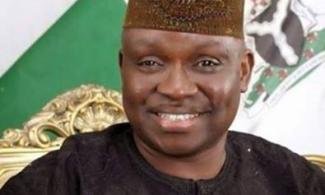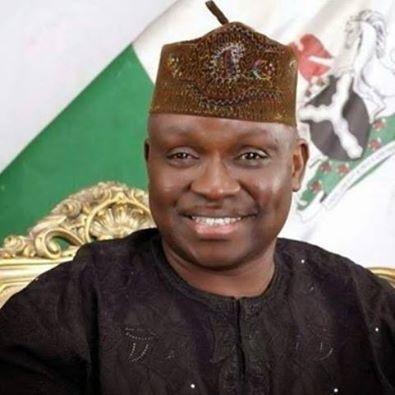
Governor Ayo Fayose of Ekiti State frequently bashes the Federal Government, but SaharaReporters has learned that the state’s current financial solvency is largely indebted to the Muhammadu Buhari Presidency. The Presidency recently approved a refund of N8.8b to Ekiti State as the state’s share of a loan refund from the Paris Club.
Mr. Fayose has often accused the Federal Government of nonchalance about states’ financial crises. But contrary to those claims, it appears the Federal Government has indeed been supporting the Ekiti State government in meeting its financial obligations, including paying its workers.
Our correspondent learned from the Federal Ministry of Finance that the state government has received financial support in different forms since the inception of Mr. Buhari’s administration in 2015.
In particular, our findings indicated that the improved financial position of Governor Fayose’s administration was made possible by the N8.8 billion the state received recently from the Federal Government as the state’s share of a loan refund from the Paris Club.
The refund also boosted the budget support facility the Federal Government has been providing to some states of the federation, which the Fayose administration in Ekiti State has consistently received.
Our correspondent also discovered that the state government spends an estimated N2.6 billion each month on salaries, subvention, pension and gratuity. That level of financial obligation exceeds the state’s internally generated revenues (IGR).
According to a report published recently by National Bureau of Statistics (NBS), Ekiti ranks as one of the states with the lowest internally generated revenue in Nigeria. The report put the state’s IGR at a miserly N3.3 billion each year.
The state’s share of funds from the federation account is on average about N1.6 billion monthly. Based on available data, the state would not have been able to meet its monthly financial obligations without significant assistance from the Federal Government.
Data from the Ministry of Finance indicate that the state’s share of the refund from the Paris Club was merely a fraction of the financial support the state has been getting from the Federal Government.
Under the fiscal sustainability plan, Ekiti State received N1.3 billion in the first three months in 2016 and then N1.1 billion in subsequent months since the program began.
A recent editorial comment published by SaharaReporters confirmed the Ekiti State government’s substantial dependence on the Federal Government to meet most of its financial obligations, contrary to claims by the governor. The commentator wrote, “Ekiti State was once a proud producer of Igbemo Rice. Incidentally, Igbemo Ekiti is the next town to Fayose's village, Afao Ekiti.
“So, [Mr. Fayose] should tell Nigerians why his government of stomach infrastructure has failed to revitalize the Igbemo rice factory which was once a pride of the Ekiti people.” The commentator questioned why Governor Fayose had failed to utilize the state’s comparative advantage in agriculture. He also raised questions about the governor’s failure to partner with other states to boost agricultural production in the state.
“Has the governor of Ebonyi State not increased rice production to the extent that the state is selling rice to other states right now?” wrote the commentator, adding, “Is the lousy governor of Ekiti state not aware that the government of Governor Akin Ambode of Lagos State decided to partner with Governor Bagudu of Kebbi State for the production of rice? Is Mr. Fayose not aware that the partnership has created opportunities for Lagosians to buy a bag of rice in Lagos at N12, 000 while it is sold at N20, 000 in Fayose’s land of empty stomach infrastructure?’’
Ekiti State workers had on different occasions in 2016 appealed to the governor to use funds released by the Federal Government to clear their salary arrears.
